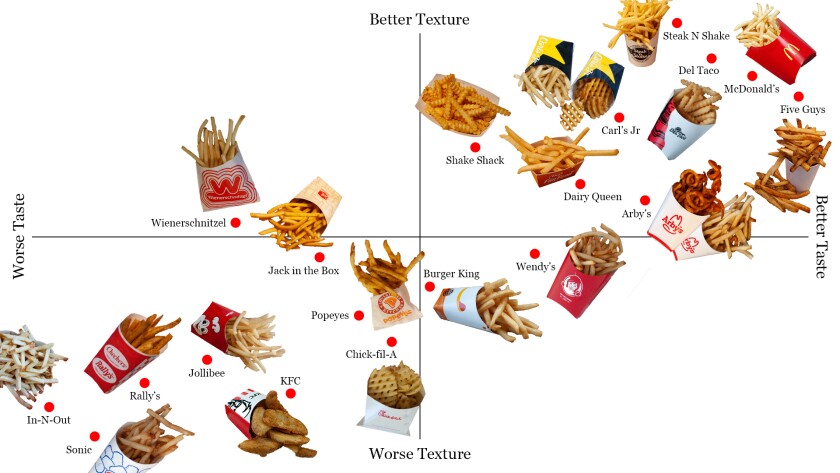12:00PM - 1:30PM

- The food chain describes who eats whom in the wild. Every living thing—from one-celled algae to giant blue whale s—needs food to survive. Each food chain is a possible pathway that energy and nutrient s can follow through the ecosystem. For example, grass produces its own food from sunlight.
- Test your knowledge of food chains and food webs! If you're seeing this message, it means we're having trouble loading external resources on our website. If you're behind a web filter, please make sure that the domains.kastatic.org and.kasandbox.org are unblocked.
- A food chain shows how each living thing gets food, and how nutrients and energy are passed from creature to creature. Food chains begin with plant-life, and end with animal-life. Some animals eat plants, some animals eat other animals. A simple food chain could start with grass, which is eaten by rabbits.
- To understand how plants and animals interact, scientists make diagrams called food chains. A food chain shows a sequence of living things in which one organism eats the one below it. Most animals eat more than one thing, so to show ALL the feeding relationships, we use food webs which are made of many intersecting food chains.
Mershon Center - 1501 Neil Ave
Add to Calendar2018-10-25 11:00:002018-10-25 12:30:00Food Justice from the Frontline: A Conversation with the Coalition of Immokalee Workers RSVP for lunch: https://docs.google.com/forms/d/e/1FAIpQLSfGvkPR4pOykVPYr-LYrSTRrpD0rcX0qF_hqs7nfFsiLvLjvQ/viewform Speakers: Paloma Martinez-Cruz (OSU, SPPO), Ximena Pedroza (Student Farmworker Alliance), Nely Rodriguez (Coalition of Immokalee Workers), and Inés Valdez (OSU, Political Science) The Coalition of Immokalee Workers (CIW) is a worker-based human rights organization internationally recognized for its achievements in the fields of social responsibility, human trafficking, and gender-based violence at work. Built on a foundation of farmworker community organizing starting in 1993, and reinforced with the creation of a national consumer network since 2000, CIW’s work been at the forefront of the food the groundbreaking Fair Food Program that is transforming the landscape of social responsibility in our food chains. Join us in a conversation with CIW member Nely Rodriguez, who has been leading the campaign against sexual harassment in the fields. This event is co-sponsored by Latina/o Studies, the Office of Diversity and Inclusion, and the departments of Political Science and Spanish and Portuguese. Free and open to the public. Mershon Center - 1501 Neil Ave OSU ASC Drupal 8ascwebservices@osu.eduAmerica/New_Yorkpublic
Add to Calendar2018-10-25 12:00:002018-10-25 13:30:00Food Justice from the Frontline: A Conversation with the Coalition of Immokalee Workers RSVP for lunch: https://docs.google.com/forms/d/e/1FAIpQLSfGvkPR4pOykVPYr-LYrSTRrpD0rcX0qF_hqs7nfFsiLvLjvQ/viewform Speakers: Paloma Martinez-Cruz (OSU, SPPO), Ximena Pedroza (Student Farmworker Alliance), Nely Rodriguez (Coalition of Immokalee Workers), and Inés Valdez (OSU, Political Science) The Coalition of Immokalee Workers (CIW) is a worker-based human rights organization internationally recognized for its achievements in the fields of social responsibility, human trafficking, and gender-based violence at work. Built on a foundation of farmworker community organizing starting in 1993, and reinforced with the creation of a national consumer network since 2000, CIW’s work been at the forefront of the food the groundbreaking Fair Food Program that is transforming the landscape of social responsibility in our food chains. Join us in a conversation with CIW member Nely Rodriguez, who has been leading the campaign against sexual harassment in the fields. This event is co-sponsored by Latina/o Studies, the Office of Diversity and Inclusion, and the departments of Political Science and Spanish and Portuguese. Free and open to the public. Mershon Center - 1501 Neil AveCenter for Ethnic Studiesethnicstudies@osu.eduAmerica/New_Yorkpublic

Facts About Food Chains
A food chain is the process in which living things eat each other to gain energy to stay alive. A food chain can be as small as two living things or as large as ten or more, depending on the ecosystem involved. Your students will need the following items to complete this project.
Pictures Of Food Chains
RSVP for lunch: https://docs.google.com/forms/d/e/1FAIpQLSfGvkPR4pOykVPYr-LYrSTRrpD0rcX0qF_hqs7nfFsiLvLjvQ/viewform
Speakers: Paloma Martinez-Cruz (OSU, SPPO), Ximena Pedroza (Student Farmworker Alliance), Nely Rodriguez (Coalition of Immokalee Workers), and Inés Valdez (OSU, Political Science)



The Coalition of Immokalee Workers (CIW) is a worker-based human rights organization internationally recognized for its achievements in the fields of social responsibility, human trafficking, and gender-based violence at work. Built on a foundation of farmworker community organizing starting in 1993, and reinforced with the creation of a national consumer network since 2000, CIW’s work been at the forefront of the food the groundbreaking Fair Food Program that is transforming the landscape of social responsibility in our food chains. Join us in a conversation with CIW member Nely Rodriguez, who has been leading the campaign against sexual harassment in the fields.
This event is co-sponsored by Latina/o Studies, the Office of Diversity and Inclusion, and the departments of Political Science and Spanish and Portuguese. Free and open to the public.
